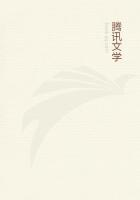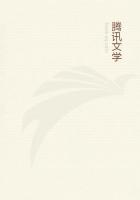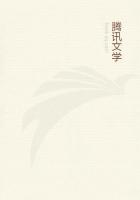The meanest professions, indeed, so far sometimes forget themselves, or the rest of mankind, as to arrogate, in commending what is distinguished in their own way, every epithet the most respectable claim as the right of superior abilities. Every mechanic is a great man with the learner, and the humble admirer, in his particular calling; and we can, perhaps, with more assurance pronounce what it is that should make a man happy and amiable, than what should make his abilities respected, and his genius admired. This, upon a view of the talents themselves, may perhaps be impossible. The effect, however, will point out the rule and the standard of our judgement. To be admired and respected, is to have an ascendant among men. The talents which most directly procure that ascendant, are those which operate on mankind, penetrate their views, prevent their wishes, or frustrate their designs. The superior capacity leads with a superior energy, where every individual would go, and shews the hesitating and the irresolute a clear passage to the attainment of their ends.
This description does not pertain to any particular craft or profession; or perhaps it implies a kind of ability, which the separate application of men to particular callings, only tends to suppress or to weaken. Where shall we find the talents which are fit to act with men in a collective body, if we break that body into parts, and confine the observation of each to a separate track?
To act in the view of his fellow-creatures, to produce his mind in public, to give it all the exercise of sentiment and thought, which pertain to man as a member of society, as a friend, or an enemy, seems to be the principal calling and occupation of his nature. If he must labour, that he may subsist, he can subsist for no better purpose than the good of mankind;nor can he have better talents than those which qualify him to act with men. Here, indeed, the understanding appears to borrow very much from the passions; and there is a felicity of conduct in human affairs, in which it is difficult to distinguish the promptitude of the head from the ardour and sensibility of the heart. Where both are united, they constitute that superiority of mind, the frequency of which among men, in particular ages and nations, much more than the progress they have made in speculation, or in the practice of mechanic and liberal arts, should determine the rate of their genius, and assign the palm of distinction and honour.
When nations succeed one another in the career of discoveries and inquiries, the last is always the most knowing. Systems of science are gradually formed. The globe itself is traversed by degrees, and the history of every age, when past, is an accession of knowledge to those who succeed. The Romans were more knowing than the Greeks; and every scholar of modern Europe is, in this sense, more learned than the most accomplished person that ever bore either of those celebrated names. But is he on that account their superior?
Men are to be estimated, not from what they know, but from what they are able to perform; from their skill in adapting materials to the several purposes of life; from their vigour and conduct in pursuing the objects of policy, and in finding the expedients of war and national defence. Even in literature, they are to be estimated from the works of their genius, not from the extent of their knowledge. The scene of mere observation was extremely limited in a Grecian republic; and the bustle of an active life appeared inconsistent with study. but there the human mind, notwithstanding, collected its greatest abilities, and received its best informations, in the midst of sweat and of dust.
It is peculiar to modern Europe, to rest so much of the human character on what may be learned in retirement, and from the information of books. A just admiration of ancient literature, an opinion that human sentiment, and human reason, without this aid, were to have vanished from the societies of men, have led us into the shade, where we endeavour to derive from imagination and thought, what is in reality matter of experience and sentiment:
and we endeavour, through the grammar of dead languages, and the channel of commentators, to arrive at the beauties of thought and elocution, which sprang from the animated spirit of society, and were taken from the living impressions of an active life. Our attainments are frequently limited to the elements of every science, and seldom reach to that enlargement of ability and power which useful knowledge should give. Like mathematicians, who study the Elements of Euclid, but never think of mensuration, we read of societies, but do not propose to act with men: we repeat the language of politics, but feel not the spirit of nations: we attend to the formalities of a military discipline, but know not how to employ numbers of men to obtain any purpose by stratagem or force.
But for what end, it may said, point out a misfortune that cannot be remedied? If national affairs called for exertion, the genius of men would awake; but in the recess of better employment, the time which is bestowed on study, if even attended with no other advantage, serves to occupy with innocence the hours of leisure, and set bounds to the pursuit of ruinous and frivolous amusements. From no better reason than this, we employ so many of our early years, under the rod, to acquire what it is not expected we should retain beyond the threshold of the school;and whilst we carry the same frivolous character in our studies that we do in our amusements, the human mind could not suffer more from a contempt of letters, than it does from the false importance which is given to literature, as a business for life, not as a help to our conduct, and the means of forming a character that may be happy in itself, and useful to mankind.















